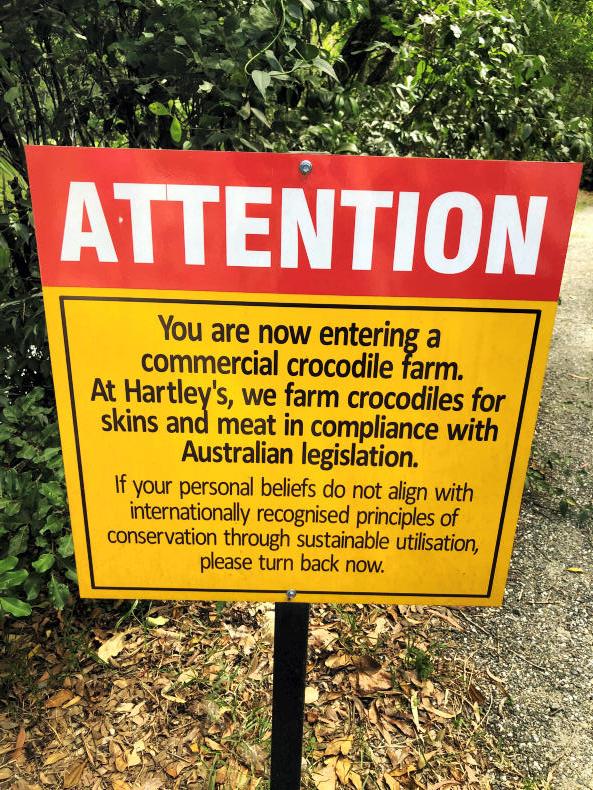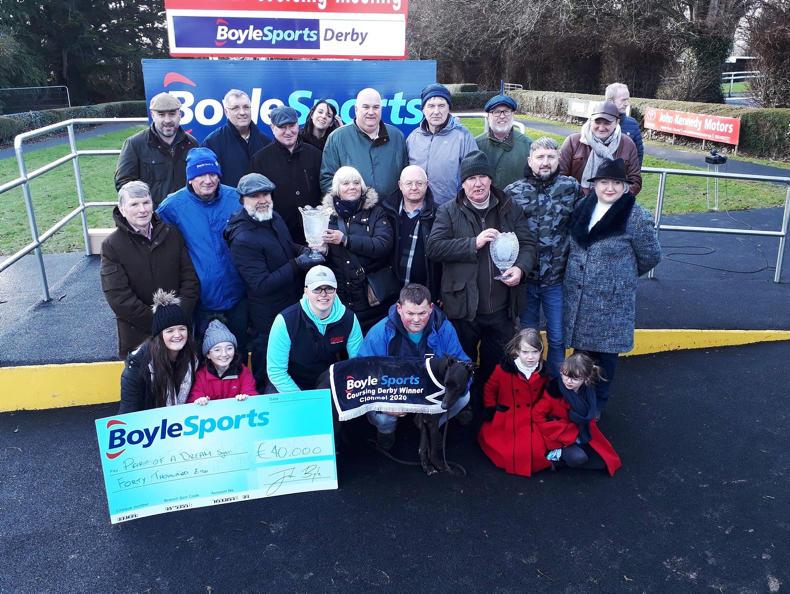We grew up on coursing. My father Seamus has been training greyhounds his whole life, here in Ireland when I was young and in the UK for the past 25 years.
Last Sunday, Dad and his wife Teresa, and their ‘Part of a dream’ syndicate, won the Greyhound Coursing Derby in Clonmel at the national meeting. Since I was a child many improvements have been made for the welfare of the animals - both hares and dogs. These came in as it is a regulated sport.
The greyhound industry has come under enormous pressure in recent years. The cases of Rabbit Haemorrhagic Disease (RHD2) caused many coursing meets to be cancelled this year and there were also the media reports highlighting issues within the industry. Some of these concerns were justified and, as is often the case, sometimes it is important for problems to be highlighted so that improvements can be made.

McKeever family visit Hartley's Crocodile farm in Cairns Queesland Australia.
Last July, family McKeever travelled over to Cairns in Queensland to support my sister Leza who was competing in an iron man competition. We did a lot of the tourist trips around this tropical region of Australia. For me, one of the most interesting visits was to a crocodile farm nearby.
This is a working farm as well as a tourist and conservation enterprise
We did this on the day of our departure because it is always difficult to leave family and to separate little cousins who have bonded well during their time together. We manage this by going somewhere from where we can just leave with a ‘see you later’ when excitement is still high.
Hartley’s Crocodile Farm is close enough to Cairns airport and this is a working farm as well as a tourist and conservation enterprise.
Our visit there made me think more about animal welfare and animal conservation. Firstly there was a sign advising visitors that this was a working farm and if you didn’t like that you could leave.

McKeever family visit Hartley's Crocodile farm in Cairns Queesland Australia.
As we were brought around the farm we heard the story of the crocodile in this part of Australia. During the 1950s and 1960s hunting of crocodiles for their skins and meat brought the animals close to extinction. As these animals are predators and threaten both livestock and humans, their conservation presented some specific challenges.
Farming of the animals was regulated and legislation was introduced. The sustainable use of crocodiles for skin and meat production is now encouraged as a legitimate conservation tool. When crocodiles were not farmed, there was hunting and the animals were almost obliterated.
The lower value meant that poaching was no longer profitable, so it dwindled
When farming was introduced, the farmed product was of a higher standard as the animals were cared for. As the farmed animals were not climbing over rocks to compete for food and ripping their skins, they became more valuable than the "wild" animals. The lower value meant that poaching was no longer profitable, so it dwindled.
Species conservation, animal welfare and field sports will continue to be contentious. This subject has been studied by Neil Reid, a lecturer in conservation biology at Queen’s University Belfast. He found that the density of hares is actually higher in coursing areas.
Does this prove that when an activity which many people want is done correctly under regulation and legislation, it is better for the long term benefit of the animals? The crocodile example showed that if you make something illegal, you drive it underground.
Reid concluded that any change to the status of legal hare coursing for animal welfare may necessitate an increase in Government subsidies to protect the animal on private land and more legislation would be required. On top of this, there is the issue of the slippery slope which I often elude to. Would a ban on coursing or hunting or shooting or fishing spill over into conventional agriculture and impact on pigs, dairy, beef and sheep. Where is the real end game in this debate?
Read more
Love politics and power: a recipe for potentially explosive relationships
'I want to teach women to play chess'
We grew up on coursing. My father Seamus has been training greyhounds his whole life, here in Ireland when I was young and in the UK for the past 25 years.
Last Sunday, Dad and his wife Teresa, and their ‘Part of a dream’ syndicate, won the Greyhound Coursing Derby in Clonmel at the national meeting. Since I was a child many improvements have been made for the welfare of the animals - both hares and dogs. These came in as it is a regulated sport.
The greyhound industry has come under enormous pressure in recent years. The cases of Rabbit Haemorrhagic Disease (RHD2) caused many coursing meets to be cancelled this year and there were also the media reports highlighting issues within the industry. Some of these concerns were justified and, as is often the case, sometimes it is important for problems to be highlighted so that improvements can be made.

McKeever family visit Hartley's Crocodile farm in Cairns Queesland Australia.
Last July, family McKeever travelled over to Cairns in Queensland to support my sister Leza who was competing in an iron man competition. We did a lot of the tourist trips around this tropical region of Australia. For me, one of the most interesting visits was to a crocodile farm nearby.
This is a working farm as well as a tourist and conservation enterprise
We did this on the day of our departure because it is always difficult to leave family and to separate little cousins who have bonded well during their time together. We manage this by going somewhere from where we can just leave with a ‘see you later’ when excitement is still high.
Hartley’s Crocodile Farm is close enough to Cairns airport and this is a working farm as well as a tourist and conservation enterprise.
Our visit there made me think more about animal welfare and animal conservation. Firstly there was a sign advising visitors that this was a working farm and if you didn’t like that you could leave.

McKeever family visit Hartley's Crocodile farm in Cairns Queesland Australia.
As we were brought around the farm we heard the story of the crocodile in this part of Australia. During the 1950s and 1960s hunting of crocodiles for their skins and meat brought the animals close to extinction. As these animals are predators and threaten both livestock and humans, their conservation presented some specific challenges.
Farming of the animals was regulated and legislation was introduced. The sustainable use of crocodiles for skin and meat production is now encouraged as a legitimate conservation tool. When crocodiles were not farmed, there was hunting and the animals were almost obliterated.
The lower value meant that poaching was no longer profitable, so it dwindled
When farming was introduced, the farmed product was of a higher standard as the animals were cared for. As the farmed animals were not climbing over rocks to compete for food and ripping their skins, they became more valuable than the "wild" animals. The lower value meant that poaching was no longer profitable, so it dwindled.
Species conservation, animal welfare and field sports will continue to be contentious. This subject has been studied by Neil Reid, a lecturer in conservation biology at Queen’s University Belfast. He found that the density of hares is actually higher in coursing areas.
Does this prove that when an activity which many people want is done correctly under regulation and legislation, it is better for the long term benefit of the animals? The crocodile example showed that if you make something illegal, you drive it underground.
Reid concluded that any change to the status of legal hare coursing for animal welfare may necessitate an increase in Government subsidies to protect the animal on private land and more legislation would be required. On top of this, there is the issue of the slippery slope which I often elude to. Would a ban on coursing or hunting or shooting or fishing spill over into conventional agriculture and impact on pigs, dairy, beef and sheep. Where is the real end game in this debate?
Read more
Love politics and power: a recipe for potentially explosive relationships
'I want to teach women to play chess'








 This is a subscriber-only article
This is a subscriber-only article






SHARING OPTIONS: